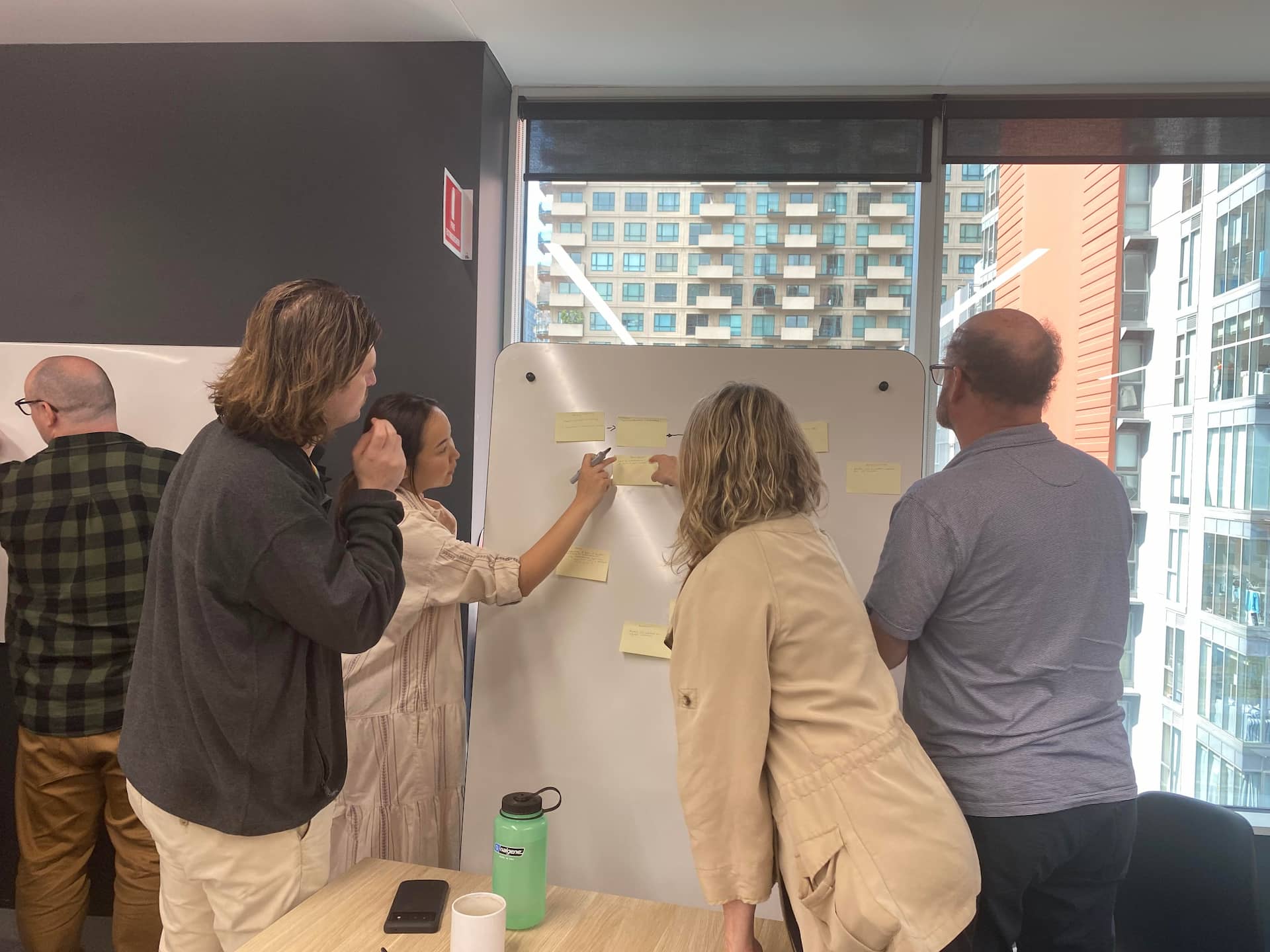Contributing to Circular Construction Businesses through Knowledge Sharing: How Systems Thinking can be used within businesses
The Circular Economy Hub @RMIT together with the School of PCPM is organising industry engaged workshops for different government and business stakeholders on applying systems thinking to approach Circular Economy challenges. The first workshop, held in mid-October, targeted the circular economy policy implementation team at Sustainability Victoria. Over 30 participants from Sustainability Victoria attended the session, where they worked on how the net zero transition within households could be made more circular.
Industry partners are invited to attend a future workshop focusing on the construction sector. Benefits for participants include:
- Learn systems mapping and circular economy principles that can optimise managing your business;
- Networking opportunity with other businesses focusing on circular economy in construction;
- Contribute towards the ongoing CE systems mapping activities.
 Workshop conducted for Sustainability Victoria on October 17.
Workshop conducted for Sustainability Victoria on October 17.
For whom: Owners, senior managers, procurement officers, sustainability officers working within the construction and related sectors
When: Thursday, December 5, 2024
Time: 5.00 - 7.00 pm
Where: Kingston City Council
While sharing systems thinking knowledge with participants, this interactive workshop will also generate knowledge on the challenges of applying a circular economy to their businesses. The RMIT Circular Economy project team plans to share this policy-relevant information with government agencies as a step towards informed circular economy policymaking, which is an essential tool in applying systems thinking to policy processes.
Why is this important?
The construction industry is one of the highest waste-generating industries in Australia. In addition to the huge construction and demolition (C&D) waste quantities, the nature of this waste poses considerable challenges for businesses, respective government agencies, and waste management businesses (DCCEEW, 2021). With the escalating demand for buildings and the resulting pressure on sourcing more sustainable and affordable materials for the industry (Ma et al., 2020), the Circular Economy is making a compelling case with each passing day (Bao et al., 2019). The circular economy concept has been gaining popularity in many countries based on the principle of prolonging the value of materials within the economy (Ellen Macarthur Foundation, n.d.). However, more than 30 years since its introduction, businesses and government agencies grapple with many challenges in applying circularity. For example, C&D waste avoidance and recycling are still nascent (Ma et al., 2020). While different approaches and techniques have been adopted to gear the construction and other sectors towards circularity, the ‘systems thinking’ approach (Meadows, 2008) provides a more holistic outlook of the factors influencing and the potential for guiding businesses and governments to overcome challenges along this transition. Systems thinking underscores the interactions between stocks and flows in an identified boundary, underpinning the criticality of information flow or ‘feedback loops’ (Meadows, 2008).
This project is funded through RMIT’s Enabling Impact Platforms.